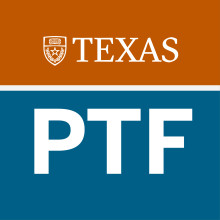Individual Fellow Initiatives

QR Learning for addressing social and racial injustice
The current proposal envisions developing alternative pedagogical materials for the “Measuring Racial Inequality” course, written in plain language and accessible to students from social sciences/humanities and underserved communities and families.

Offering Real-World Opportunities for Students Enrolled in Statistics and Data Science Undergraduate Research
The primary goal of this community-based service project is to provide experiential learning opportunities for undergraduates interested in statistics and data sciences while supporting the broader Austin-area community. Coordinating with local organizations, students enrolled in some of our SDS courses are gaining hands-on experience in data analysis while exploring authentic contexts. This innovative and collaborative effort provides a community-based model that allows students and local organizations to co-develop and answer real-world research questions.

Strengthening the Sustainability Studies Degree
Sustainability Studies graduated its first sizeable cohort in 2022, and the program has yet to undergo a comprehensive review. Conversations with students revealed their desire for better access to the professional field of sustainability across the sectors of non-profit, government, and business. This is an area that the current structure of the degree does not adequately address. To address these concerns, I am proposing a three-pronged approach. My first initiative is to build a database of internships across the three sectors mentioned above.

Developing Experiential Learning in Organizations
My project, “Developing Experiential Experiences in Organizations,” assessed HDO students’ access to experiential learning
in organizations, particularly in the form of internships; additionally, our program aimed to provide more built-in
opportunities HDO students to engage in experiential learning. To gauge need, I surveyed HDO students. Results
demonstrated that many of our students were graduating without any organizational experience, especially first-generation

Internship in the Media Industries
Internships have increasingly become a critical step in the college-to-career transition in the media industries and beyond.

University of Texas Marketing Projects
Marketing is inherently an applied science and, as a result, students learn the most when they can see marketing theories, constructs, and models in action. Marketing is at the intersection of so many academic disciplines—economics, statistics, psychology, sociology, organizational theory and decision science; and to see the way in which each of these disciplines influences marketing decisions requires the real-world dynamics of marketing-decision-making in a dynamic real-world context.

Medieval Digital Research Lab: A Pilot Upper-Division Course
The idea for this pilot course grows directly out of departmental and university goals to increase opportunities for Experiential Learning and for new technology exposure in the Humanities; and to involve more undergraduate students in original faculty research.

Integration of an Experiential Learning Module Into an Upper Division Science Course
Educational research has provided compelling evidence that science students learn most effectively when they are engaged in Experiential Learning, broadly defined as hands-on learning where students are doing meaningful work in their discipline under the guidance of experts. Ideally, students would be exposed to Experiential Learning at multiple stages. While programs have been successful in providing experiential approaches to underclassmen, no large-scale effort exists for upper division students at UT Austin.

Learning To Just Do It: Get ‘Em While They’re Figs
Freshmen, often overwhelmed by perceived barriers of time, motivation, and knowledge don’t remain active, leading to weight gain and associated physical and emotional issues. Regular physical activity directly and positively impacts physical and emotional well-being and transfers to better scholastic outcomes. KHE majors need practical experiences to develop skills to develop programs that match personal goals and fitness levels. This project was unique in that it meets an identified need for freshmen and KHE majors.

From Putting in Time to Meaningful Civic Engagement: Transforming Service Learning in an Undergraduate Social Work Program
As a Provost’s Teaching Fellow, Vicki Packheiser is transforming Experiential Learning in Social Work’s foundational courses. This two-course sequence has long required 45 hours of service learning per course with a community agency. Social Work pre-majors contribute 10,000+ hours of service to the Austin community, serving as UT ambassadors while they gain experience that grounds their academics in future years. But the implementation has not lived up to the potential.

Animals, Sustainability, and the Environment: A Service Learning Model for the Humanities
This project has provided my students with an experience in hands-on service learning, thus fostering a synergistic understanding of historical analysis and community engagement. “Animals and American Culture: Select Historical Perspectives” is an interdisciplinary upper-division undergraduate seminar that attracts a diverse student body in the liberal arts and natural sciences. During the first week of class, students are required to contact one of two local organizations--or, with my permission, an organization of their own choosing.

